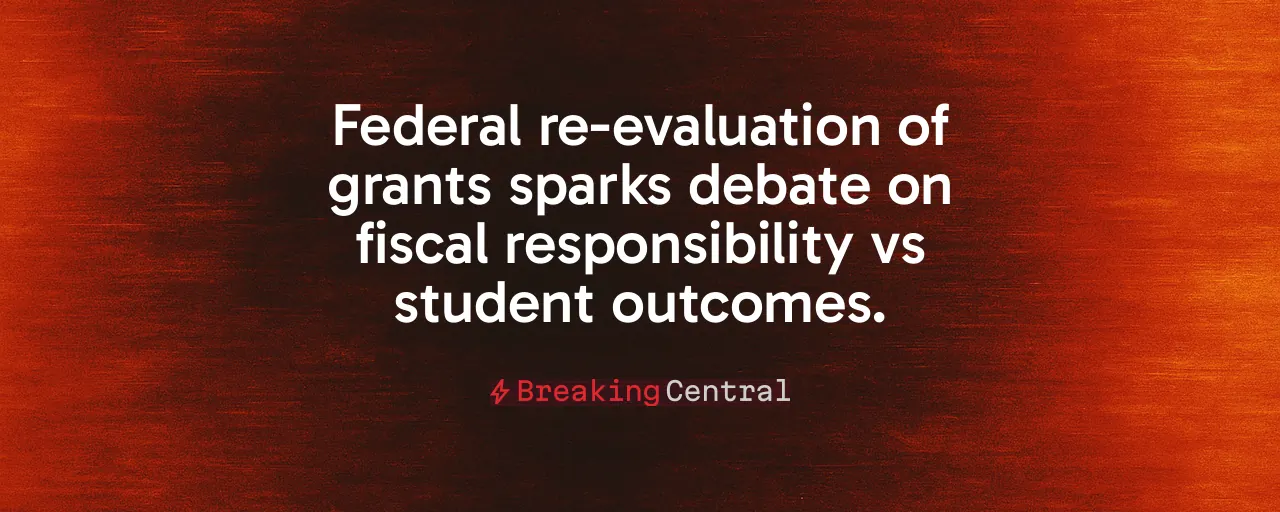A Sudden Shift in Federal Priorities
News broke this week that California Attorney General Rob Bonta, alongside 16 other states, filed a motion to block the Trump administration's decision to halt $1 billion in school mental health grants. The move, announced on April 29, 2025, targets funds meant for counselors and psychologists in high-need schools, including $200 million for California. While Bonta argues the cuts harm students, the decision raises deeper questions about federal overreach, local responsibility, and the true purpose of these programs.
The grants, authorized by the 2022 Bipartisan Safer Communities Act, aimed to address rising youth mental health challenges post-COVID. Schools in low-income and rural areas, where access to care is scarce, relied on this money to hire professionals and build support systems. The Department of Education, led by Secretary Linda McMahon, claims the programs strayed from their mission, prioritizing diversity initiatives over measurable student outcomes.
The dispute extends beyond financial considerations, focusing instead on who determines what is best for children: federal agencies or local communities? The administration's pivot signals a broader push to rethink how federal funds are spent, emphasizing accountability and alignment with national priorities like merit and fairness in education.
Questioning the Grants' True Impact
At first glance, the grants seem vital. Schools used them to hire nearly 1,300 mental health professionals nationwide, serving roughly 775,000 students in their first year. Data from the National Association of School Psychologists shows lower absenteeism and fewer behavioral issues in participating districts. A closer examination reveals a more complex situation. Government Accountability Office reports from prior years highlight uneven performance across similar programs, with some districts struggling to show long-term gains.
Critics point to administrative bloat. A significant portion of the $1 billion was allocated to overhead costs rather than direct student services. The Department of Education also flagged potential civil rights violations, accusing some grantees of using race-based hiring to meet diversity quotas. If true, this misstep diverts resources towards ideological agendas, raising concerns among taxpayers wary of federal waste.
The administration responded by proposing to redirect the funds. By re-competing the grants with stricter criteria, the Department aims to ensure funds directly benefit students. This approach aligns with a growing demand for transparency in how public dollars are spent, especially as federal deficits climb.
Local Control Takes Center Stage
Beyond the courtroom drama, the dispute underscores a core principle: local communities know their needs better than distant officials. States like California argue the cuts will gut services for vulnerable students. Many districts, however, already manage mental health programs without heavy federal strings. Block grants, which give states flexibility to tailor solutions, could replace rigid federal mandates, empowering school boards and parents to prioritize what works.
Historical precedent supports this shift. The 1994 Safe and Drug-Free Schools Act gave states leeway to address local challenges, leading to innovative programs that didn't rely on Washington's playbook. Top-down initiatives often breed dependency, leaving districts scrambling when federal priorities change, as occurred this spring.
Private partnerships offer another path. Nonprofits and faith-based groups have long provided counseling and mentorship in underserved areas, often at lower costs. Encouraging these efforts, alongside school choice policies, could stretch dollars further while respecting the unique needs of each community.
Balancing Student Needs and Fiscal Duty
No one disputes that kids need support. Studies link school-based mental health services to higher graduation rates and lower juvenile justice costs, with long-term savings outweighing initial investments. With national debt soaring, every program is expected to prove its worth. The Trump administration's push to re-evaluate these grants reflects a broader call for fiscal discipline, aiming to ensure taxpayer money delivers tangible results.
The legal battle will likely hinge on procedural adequacy rather than policy merits. Courts have blocked executive actions, such as efforts to withhold COVID-relief money from states in 2020, when agencies failed to justify their moves. If the Department can't show the grants violated laws or underperformed, the injunction may succeed. That is a short-term fix. Long-term, Congress could clarify funding rules, tying dollars strictly to clinical outcomes and banning discriminatory practices.
A Call for Practical Solutions
This debate centers on effectively delivering support to children. States could lead by boosting local budgets for mental health, as some already do through Medicaid partnerships. Schools could integrate parent-led councils to guide resource allocation, ensuring community voices shape priorities. Meanwhile, federal officials are expected to provide clear, evidence-based reasons for redirecting funds, avoiding the vague notices that sparked this lawsuit.
The stakes are high. Disrupting services risks setbacks for students already grappling with anxiety and depression, trends the CDC has tracked since 2019. Unchecked spending and misaligned programs, however, erode public trust. Both sides have a chance to find common ground by focusing on measurable outcomes and local empowerment, moving beyond ideological conflicts.
As courts weigh the injunction, it is clear that America's children deserve solutions prioritizing their well-being over political agendas or bureaucratic turf wars. By rethinking how we fund mental health, we can build stronger schools and brighter futures without breaking the bank.
